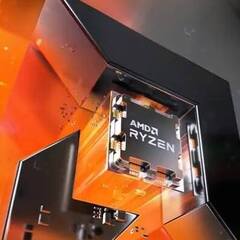Troubleshooting XMP Memory on B350 with 3700X
-
Topics
-
0
-
Bigchungusbutbigger ·
Posted in CPUs, Motherboards, and Memory3 -
Carroma ·
Posted in New Builds and Planning6 -
kasdashd ·
Posted in Folding@home, Boinc, and Coin Mining3 -
0
-
7
-
K2924 ·
Posted in General Discussion1 -
7
-
3
-
hanouzz ·
Posted in Console Gaming3
-
-
play_circle_filled

Latest From Linus Tech Tips:
Every Monitor Fails This Test… Except One - Sun Vision rE rLCD Display
-
play_circle_filled

Latest From ShortCircuit:
The World's Fastest CPU (Technically...) - Intel i9-14900KS


.jpg.5cc14cacf0bfa9d58de316927a37ec08.jpg)













Create an account or sign in to comment
You need to be a member in order to leave a comment
Create an account
Sign up for a new account in our community. It's easy!
Register a new accountSign in
Already have an account? Sign in here.
Sign In Now